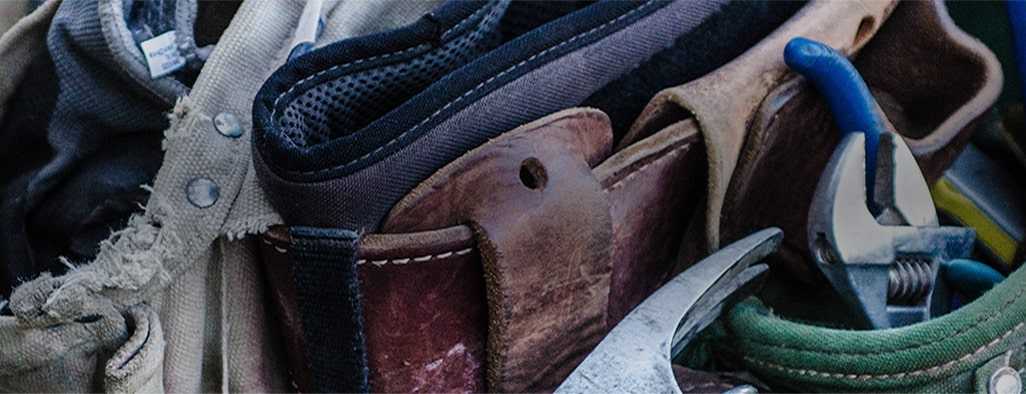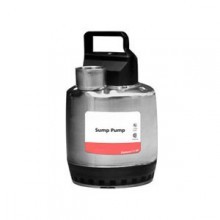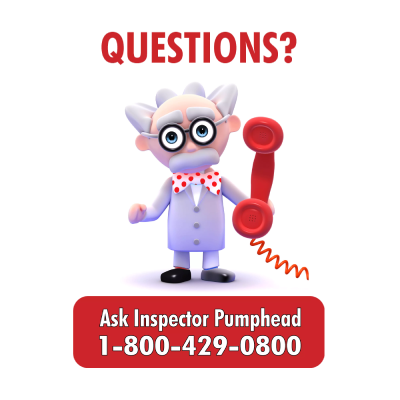-
Is Your Basement Sump Pump Protecting You From April Showers?
April 8, 2019As the saying goes, “April Showers Bring May Flowers.” Trite and corny perhaps, but it is true that significant precipitation tends to impact wide swaths of the country this time of year. And increased precipitation naturally means more groundwater, as rainfall seeps into the earth and bedrock. It can be a challenging month for home and business owners who rely on sump pumps to pump excess groundwater out of a basement. How Rain Damages Your Basement “We tend to get a a lot of calls from customers who have flooded basements around this time of year,” according to PumpProducts.com application engineer Lee. “With all the rainfall, the extra groundwater can overwhelm a sump pump system that works fine most of the year.” As groundwater pools and accumulates, upward pressure is exerted. Given enough time and water, that upward pressure will move the dirt, gravel and concrete of your basement floor, causing cracks to form, through which water seeps into your basement. That water can damage or even ruin your basement floor, walls and any other items (such as furniture, electronics or valuables) that you store in the basement area. If you let the water linger too long it can cause mold growth and spread germs or other contaminants through the air. And when the flooding finally recedes, damage that necessitates costly repair remains. “Having to redo your basement floor is bad enough, but if you have furnished rooms or store valuables in your basement, the cost could be quite exorbitant,” Lee says. Signs Your Sump Pump Might Need Replacing The beginning of April is generally a good time to run a test on your sump pump system. It’s straightforward - try pouring a bucket of water into your sump pump pit or basin (at least enough to make your float switch rise) and see how your existing Sump Pump handles the water flow. Here are some things to look out for when you run your test: Debris When you pour the water into your pit, do you notice any loose debris shaking loose Things like dirt, twigs or other particulates can clog your sump pump. Remember that a sump pump is not a sewage pump and is not capable of passing solids. Excessive noise While a little noise is natural for any operating mechanical device, your pump should not sound like it is straining to pump. Listen for whining or grinding that may indicate a problem. Short Cycling Short cycling means that the pump is running too frequently. Try holding a timer and see how long a pumping cycle takes. If it is running for too many seconds and barely “resting” before another pumping cycle starts again, the motor may burn out. Other factors to keep in mind include your recent history of flooding and the overall age of your system. Ideally, your sump pump system will run smoothly forever; there is no exact lifespan because of the wide variety of extenuating factors that determine system health, including local climate, geography, topography, quality of soil, etc. But generally our application engineers believe that a sump system that runs for three to five years is solid. Any older and you might want to consider the possibility that the pump needs repair or replacement. Sump Pump Brands We Carry PumpProducts.com carries a wide variety of sump pump brands from industry leading manufacturers, including Goulds sump pumps, Zoeller sump pumps and Liberty sump pumps. Each brand has its own strengths and features, but all our known for high quality construction, precision engineering and efficient performance. Keep your specific system parameters in mind when shopping for a sump pump. “Generally speaking, I like to recommend Goulds for lower horsepowers, Zoeller for midrange horsepowers and Liberty for the bigger stuff, but it can vary depending on a user’s needs,” according to Lee. “The most important thing is to know what you need to get out of your specific system in terms of factors like total dynamic head, run of pipe and so forth.” Is Your Sump Pump Enough Another factor to consider is whether a single sump pump is enough to combat excess groundwater. A battery backup sump pump is highly recommended by our experts, particularly if you live in an area prone to heavy rainwater or if you operate a business that cannot afford basement flooding. The battery backup is simply a sump operating on battery power that would kick on should a power outage knock your main sump pump out of commission. Considering that rainwater and power outages often go hand in hand in extreme storms, a battery backup is a smart option if keeping your system running is of the utmost importance. PumpProducts.com sells primary and back-up sump pump combination units for customer convenience. If extra protection is needed, you can rest easy with full sump pump packages. These comprehensive all-in-one packages include the primary pump, the backup pump and a basin. Many of the packages also include extra accessories such as floats, alarms, check valves, extra batteries and the like. The complete sump pump package ensures that you can keep a system running with minimal downtime and less overall maintenance. Lastly, another option to consider is the water powered backup sump pump. A non-electrical pump that kicks on when the rising water lifts up a pedestal, the water powered backup sump pump is the perfect choice for someone who does not want to rely on electrical components. Old fashioned but effective. Regardless of your choice of brand or type, a sump is critical for the health of your home and water system. Now is the best time to make sure your sump pump and your entire system is prepared for the rainy month ahead. Pump Products application engineers are standing by to help you find the right pump, as well as to provide price quotes, stocking availability and shipping information. Call our toll free number 1-800-429-0800 to speak to an expert today.






